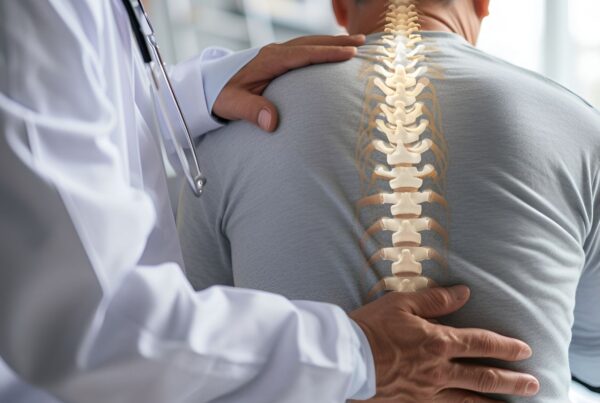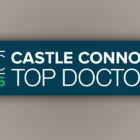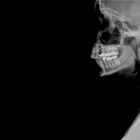Degenerative spine disease encompasses a variety of conditions that involve the deterioration of one or more parts of your spine.
Degenerative disc disease (DDD) is among the most prevalent of these conditions. It involves the gradual degeneration of intervertebral discs. These discs serve as cushions between the vertebrae and facilitate movement while absorbing shock.
If you’ve been diagnosed with degenerative disc disease (DDD) or your provider has recommended spine surgery, you likely have many questions. Here’s a closer look at degenerative disc disease to help you understand if DDD spine surgery may be the right option for you.
Understanding Degenerative Disc Disease (DDD)
Degenerative disc disease is the progressive wear and tear of intervertebral discs. This wear and tear can cause you to lose flexibility and cushioning in the spine. Some common causes of DDD may include:
- Aging: Your discs can naturally degenerate over time
- Genetic Factors: Some people are predisposed to spinal conditions like DDD
- Lifestyle Factors: Activities that place excessive strain on your spine, such as heavy lifting and poor posture, can contribute to disc degeneration
If you are suffering from DDD, it can manifest in the following ways:
- Chronic neck or back pain
- Pain, Numbness or tingling that radiates to your extremities
- Weakness in your arms or legs
An experienced neurosurgeon or spinal expert can diagnose DDD via:
- Physical Examination: Assessment of range of motion, pain response, and neurological function
- Imaging: MRI and CT scans provide detailed images of disc health and spinal alignment
Can surgery help degenerative disc disease? Yes, but your provider will likely recommend non-surgical options first. Spinal degeneration surgery may be recommended if your symptoms are severe and non-surgical interventions do not provide adequate relief.
It's time to get back
to doing what you love.
Non-Surgical Treatment Options
Mild to moderate cases of DDD can often be treated with non-surgical interventions.
Physical Therapy
Targeted exercise can strengthen the muscles that support your spine and improve flexibility. Your physical therapist will also work to promote pain relief through stretching and an exercise regimen tailored to your needs.
Medications
Anti-inflammatory drugs and pain relievers can help manage your symptoms. In some cases, your provider may prescribe muscle relaxants or oral steroids to reduce inflammation and discomfort.
Lifestyle Modifications
Implementing changes to your lifestyle can help with degenerative disc disease. Maintaining a healthy weight and improving your posture may reduce the strain on your spine and slow the progression of DDD. You may also need to substitute high-impact activities like weightlifting or sprinting for alternatives such as walking and calisthenics.
Epidural Steroid Injections
Epidural steroid injections are administered into the epidural space, which is located between the vertebral bones of your spine and the dura mater. These injections target the inflamed nerves and can provide temporary pain relief.
When is surgery needed for degenerative disc disease? Here are some indicators that you may need to consider surgical intervention.
Indications for Surgery
Your provider may recommend surgical intervention when you are dealing with:
- Pain that persists despite comprehensive non-surgical treatments
- Degeneration that causes neurological deficits
- Impaired quality of life
A thorough evaluation is necessary to identify the root cause of these symptoms and determine the most appropriate degenerative disc disease spine surgery based on your condition.
Patient Evaluation
A thorough assessment by a neurosurgeon is critical in determining if surgery is right for you. Your surgeon will consider factors such as your overall health and age, as well as your activity level and the specific spinal pathology you are experiencing.
Surgical Options for Degenerative Disc Disease
What surgery is done for degenerative disc disease? Your neurosurgeon will recommend a spinal degeneration surgery based on several factors, including the location of your degeneration and the severity of your pain. Here are some of the procedures that you may be evaluated for.
Discectomy
A degenerative disc disease discectomy involves removing the damaged part of your disc to relieve nerve pressure. Surgeons often perform this procedure to address herniated discs that are causing nerve compression.
Spinal Fusion
Degenerative disc disease spinal fusion involves joining two or more vertebrae to eliminate painful motion and stabilize your spine. Spinal fusion for degenerative disc disease has a high success rate and can provide lasting relief.
However, you will also lose flexibility at the fusion site because those vertebrae will no longer move independently of one another.
Artificial Disc Replacement
Artificial disc replacement is becoming increasingly popular as an alternative to spinal fusion. The surgeon will replace your degenerated disc with an artificial one to maintain flexibility and motion at the spinal segment.
Minimally Invasive Procedures
Techniques like a microdiscectomy involve smaller incisions and a faster recovery process. You may also recover more quickly and experience less postoperative pain. Many traditional DDD surgeries can now be performed using minimally invasive techniques.
Risks and Benefits of Surgical Intervention
Can surgery fix degenerative disc disease? Yes, but no surgery is risk-free. It’s important to weigh the benefits of surgical intervention against the potential risks so that you can make an informed decision.
Benefits
The two primary benefits of DDD surgery include significant pain relief and enhanced quality of life. Some interventions may also provide improved mobility and allow you to return to activities you love.
Risks
Potential complications involved with DDD surgery include infection, bleeding, and nerve damage. Minimally invasive procedures can decrease these risks.
You will also need to plan for a lengthy recovery process and rehabilitation requirements. Adherence to these recommendations is critical to the long-term success of your procedure.
Additionally, certain types of procedures, such as disc fusion, create a risk of adjacent segment degeneration. This may cause vertebrae above and below the fusion site to degenerate at an accelerated rate.
Seeking a Second Opinion
Before deciding on surgery for degenerative spine disease, it’s important to seek a second opinion and obtain multiple evaluations. Make sure to choose a qualified neurosurgeon or spine specialist, and consider connecting with a reputable center like Neurosurgeons of New Jersey. Our providers are recognized for their expertise in treating neurosurgical spine conditions, including degenerative disc disease. With locations throughout the state, we also offer the convenience of same-day telehealth appointments, ensuring you receive the care you need promptly.
Schedule a Consultation With Neurosurgeons of New Jersey
Will surgery help degenerative disc disease? It certainly can, especially when conservative treatments fail. However, it’s vital to weigh the risks and benefits. Most importantly, make sure you choose a reputable surgical team like Neurosurgeons of New Jersey.
Our expert providers offer personalized care and can work quickly to create a treatment plan to address your condition. Schedule a consultation today.

About Ridgewood
Our team of board certified physicians, located in Ridgewood, New Jersey, are dedicated to bringing you the latest developments and treatment options for spinal surgery. We strive to produce the most clarified & clear content to help you make informed decisions on your medical journey. The road to feeling like your true self should not feel lonely- Let us help you. Please call us to schedule a consultation and speak to one of our team members.
Recent Posts:






